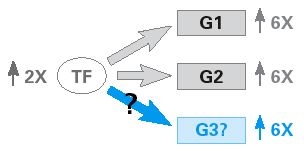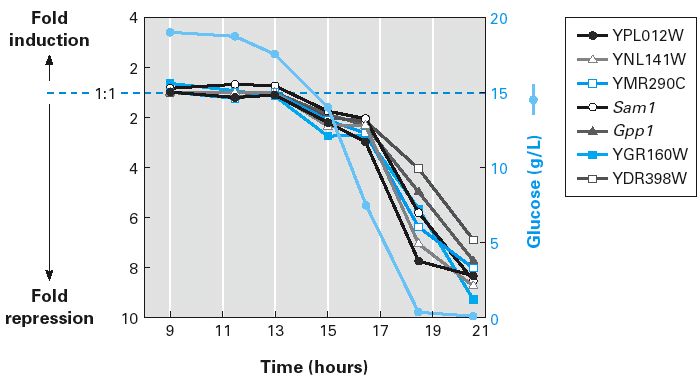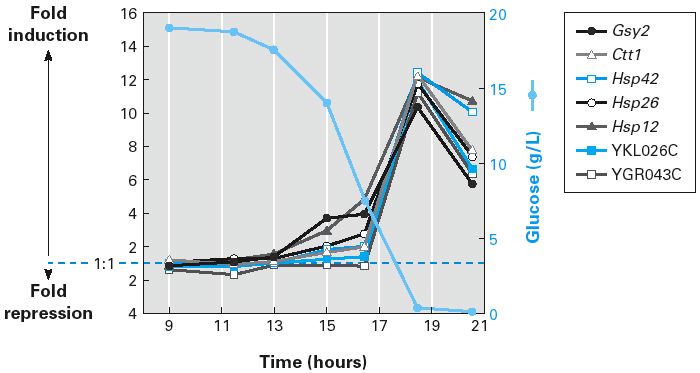1) Unknown Genes
2) Vaccine Evolution
3) Clustered Image Map
Unknown Genes - "guilt by association"
Can we use DNA microarrays to predict cellular roles for "unknown
genes"?
Guilt by association means if 3 out of four genes are known
and the unknown one appears to be coordinately regulated, then perhaps the
unknown gene has a related function.

Two examples from DeRisi et al. diauxic shift paper:

Seven Repressed Genes

Seven Induced Genes
Vaccine Evolution
Why has the TB vaccine gotten less effective over time?
Vaccine was derived from M. bovis strain.
Experimental Design:

Subset of Microarray
Have the vaccine genomes changed over
time?


16 Regions of Deletion (RD) Identified
Which strains would you use?

Dendrogram of TB Vaccine Evolution
Clustered Image Map: Interactive Database
for Cancer Treatment
1) You
will have to register (free) here. You will need your user name and password
from your registration before you can go to the next step.
2) Once you have your account, go
to the CIM site. Take the default settings and click on the green "Create
Image" button. It will take a few minutes to return the CIM. We will
come back to this. Leave the CIM window open so we can come back to it later.
Do cancer types cluster together?

NCI60 Cell Lines Clustered by DNA Microarray
Data
Can "signature genes" reveal
source of cancers?

Can we integrate databases to predict
the best treatment for a particular patient?
(individualized medication)

3) The CIM you produced compared 118 drugs (X-axis) with NCI60
cell types (Y-axis). In the CIM you produced online, find the cell line RE:CAKI-1
on the Y-axis (scroll in the left frame). Click on the area where you think
a drug would work well on RE:CAKI-1. As you click, the image will zoom in.
Find a particular drug that works well on RE:CAKI-1.
4) Imagine you had a malignant tumor
whose expression profile matched RE:CAKI-1. Go
to this page to discover the original source of your cancer.
5) Imagine you had a liver tumor that had a gene expression
profile that clustered between cell lines LE:SR and LE:HL-60. What drug would
you prescribe to treat the liver tumor?
6) What did you learn in numbers 4 and 5 that you could turn
into a research question to further cancer therapy?









